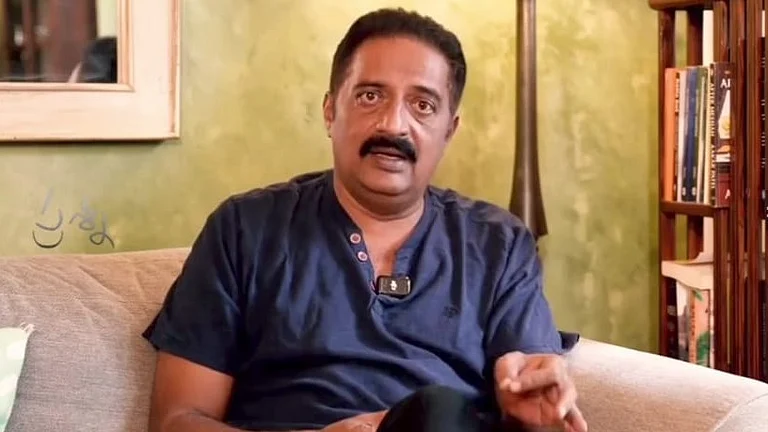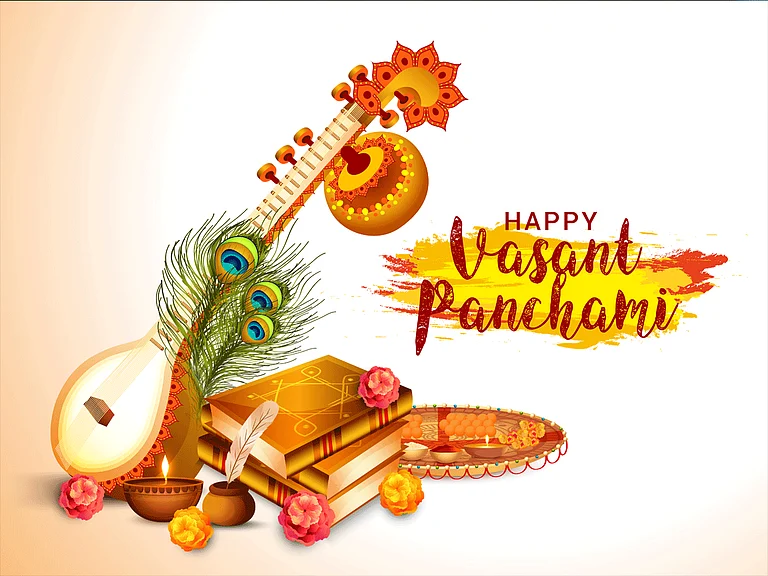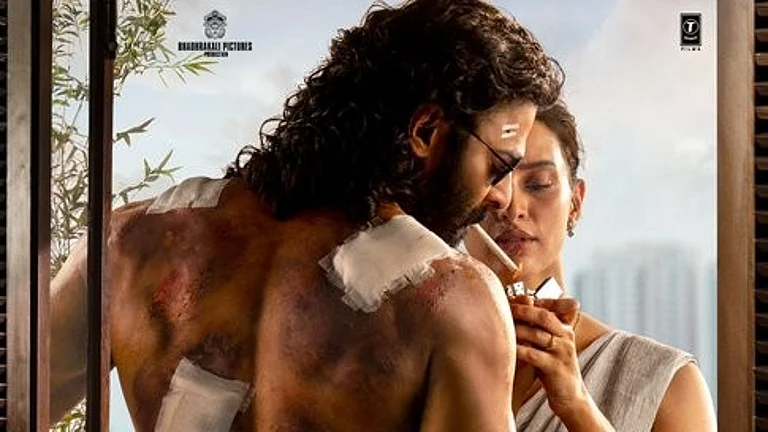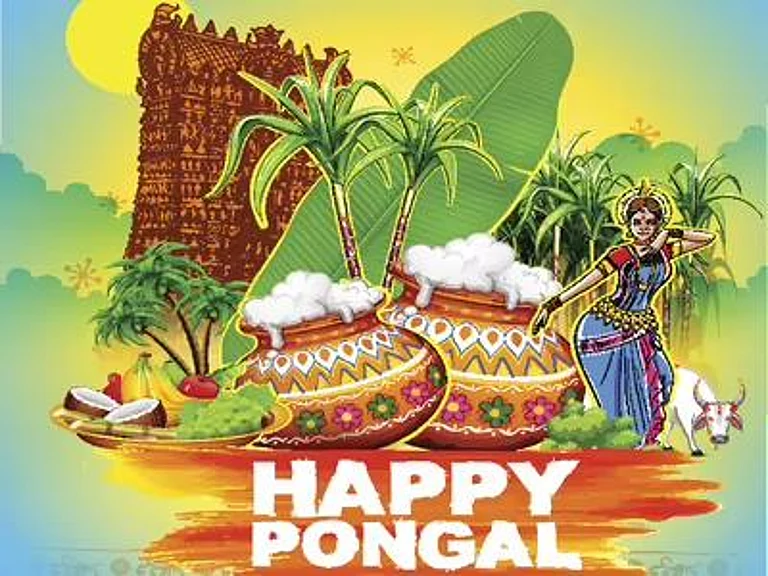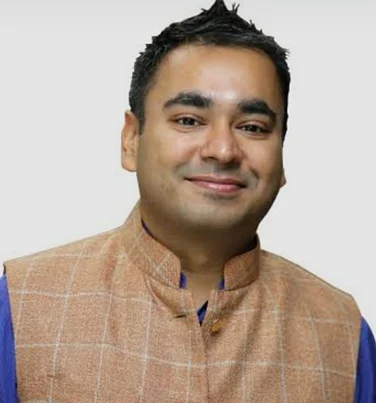In India, Holi is a big, colorful celebration that everyone waits for eagerly. During this festival, people of all ages come together to splash vibrant hues on each other, laughing and dancing to the beat of drums. It's a time when streets and homes are filled with laughter, as friends and family smear each other with colors of red, blue, yellow, and green. They also enjoy delicious sweets and special foods made for this occasion. Holi is a time when everyone, no matter who they are, joins in the fun and celebrates the arrival of spring with lots of color and happiness.
Holi, the vibrant festival of colors, has inspired countless poets and authors throughout history. It is a time of joy, love, and the celebration of spring's arrival. Let's delve into the colorful world of literature that Holi has inspired.
Let's delve into the colorful world of literature that Holi has inspired.

Bal Labhu Ram Mukand, known by his pen name Arsh Malsiyani, was an eminent Indian poet and writer, known for his lyrical verses that often captured the essence of cultural celebrations and human emotions.
Coming from a family deeply rooted in literature, Arsh Malsiani was the son of the illustrious Urdu and Persian scholar and poet, Josh Malsiyani. In his poem "Phir Dhoom Machai Holi Ne," Arsh Malsiani encapsulates the vibrant spirit of the festival of colours through his lyrical verses. The poem vividly describes the scene of joyous celebration as Holi unfolds its magic once again. With rhythmic simplicity.
phir daftar-e-raqs-o-rañg khila phir dhoom machai holi ne
phir Dhol bajā phir rañg uḌā phir dhoom machai holi ne
phir ġhat ġhat bhañg kā daur chalā phir dhoom machai holī ne
phir dhol bajā phir rañg uda phir dhoom machai holī ne
In these verses, Arsh Malsiani depicts the joyous celebration of the festival of colors. He describes how once again, the dance and color in the environment comes alive with the arrival of Holi. The drums beat, the colors fly, and the intoxicating scent of bhang (Bhang is a consumable blend derived from the buds, leaves, and flowers of the female cannabis, or marijuana, plant that has its origins in the Indian subcontinent.) fills the air as Holi brings its whirlwind of excitement. The repetition of "phir" (meaning "again" or "once more") emphasizes the cyclical nature of Holi, highlighting its timeless appeal and the perennial joy it brings to all who celebrate.

Nazeer Akbarabadi, known as the "Father of Nazm," was an 18th-century Indian poet who penned ghazals and nazms under the pen name "Nazeer."
He is celebrated for his compositions on various religious and social festivals, including Diwali, Holi, Eid, and Shab-e-baraat. Through his Nazm “holi ki baharen,” Nazeer captures the joy and vibrancy of Holi
jab phāgun rañg jhamakte hoñ tab dekh bahāreñ holi ki
aur daf ke shor khadakte hoñ tab dekh bahāreñ holi ki
pariyoñ ke rañg damakte hoñ tab dekh bahāreñ holi ki
ḳhum, shīshe, jaam jhalakte hoñ tab dekh bahāreñ holi ki
In these verses, Nazeer Akbarabadi beautifully captures the essence of the festival of Holi. He invites us to witness the vibrant arrival of spring during the month of Phagun, when the colors dazzle and the air is filled with the festive spirit of Holi. The sounds of drums add to the excitement, as if announcing the joyous occasion. Akbarabadi paints a picture of fairies sprinkling their colorful magic, and the sight of pots, glassware, and cups shimmering with Holi's radiance. Through these verses, he beckons us to behold the splendor and liveliness of the Holi festival.

Bharatendu Harishchandra, born on September 9, 1850, was a renowned Indian poet, writer. He is often called the father of Hindi literature and Hindi theater for his significant contributions.
Writing under the pen name "Rasa," he penned powerful works.
Bhartendu Harishchandra, in his work ‘Gale Mujhko Laga Lo Aye Mere Dildar Holi Mein’ beautifully expresses the sentiment of longing and love during the festival of Holi.
gale mujh ko laga lo aye mere dildar holi mein
bujhe dil ki lagi bhi to ai mere yaar holi mein
'rasā' gar jam-e-mai ġhairoñ ko dete ho to mujh ko bhi
nashili aankh dikhla kar karo sarshar holi mein
Songs Related to Holi
Holi, the festival of colors, isn't complete without its lively and spirited songs that add rhythm and joy to the celebrations. One of the most iconic Holi songs is "Rang Barse" from the Bollywood movie "Silsila," sung by Amitabh Bachchan. This song beautifully captures the playful essence of Holi, with its lyrics describing the splashing of colors and the joy of love.
Another popular Holi song is "Holi Khele Raghuveera" from the movie "Baghban," which celebrates the unity and camaraderie of the festival. Sung by Amitabh Bachchan and Sukhwinder Singh, this song energizes the atmosphere with its upbeat tempo and catchy rhythm.
From traditional folk tunes to contemporary Bollywood hits, Holi songs reflect the vibrant spirit of the festival, bringing people together in dance and revelry.
Modern hits like "Balam Pichkari" from "Yeh Jawaani Hai Deewani" and "Badri Ki Dulhania" from "Badrinath Ki Dulhania" have become Holi anthems, loved for their peppy tunes and catchy lyrics. They are all about dancing in the streets, splashing colors, and spreading happiness with loved ones.








